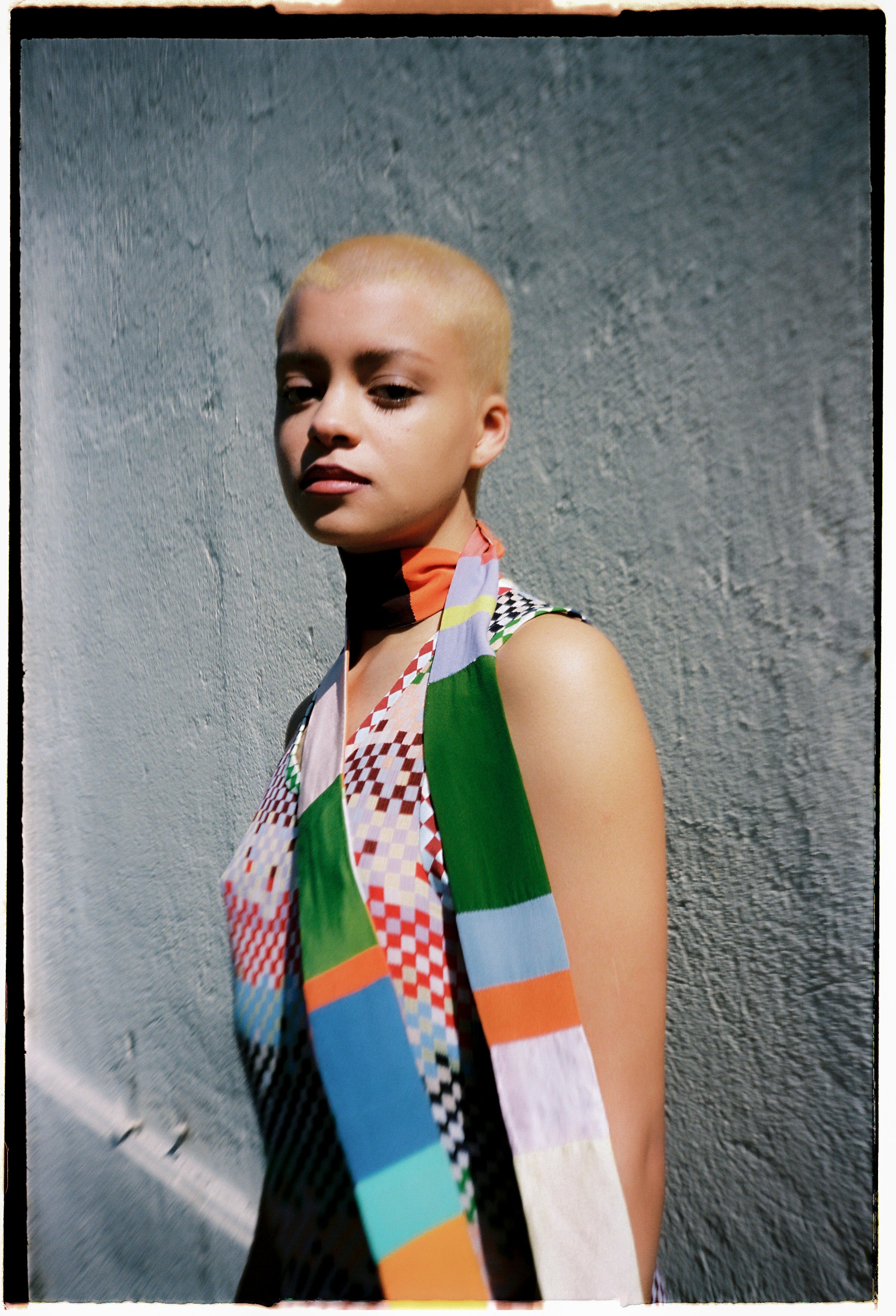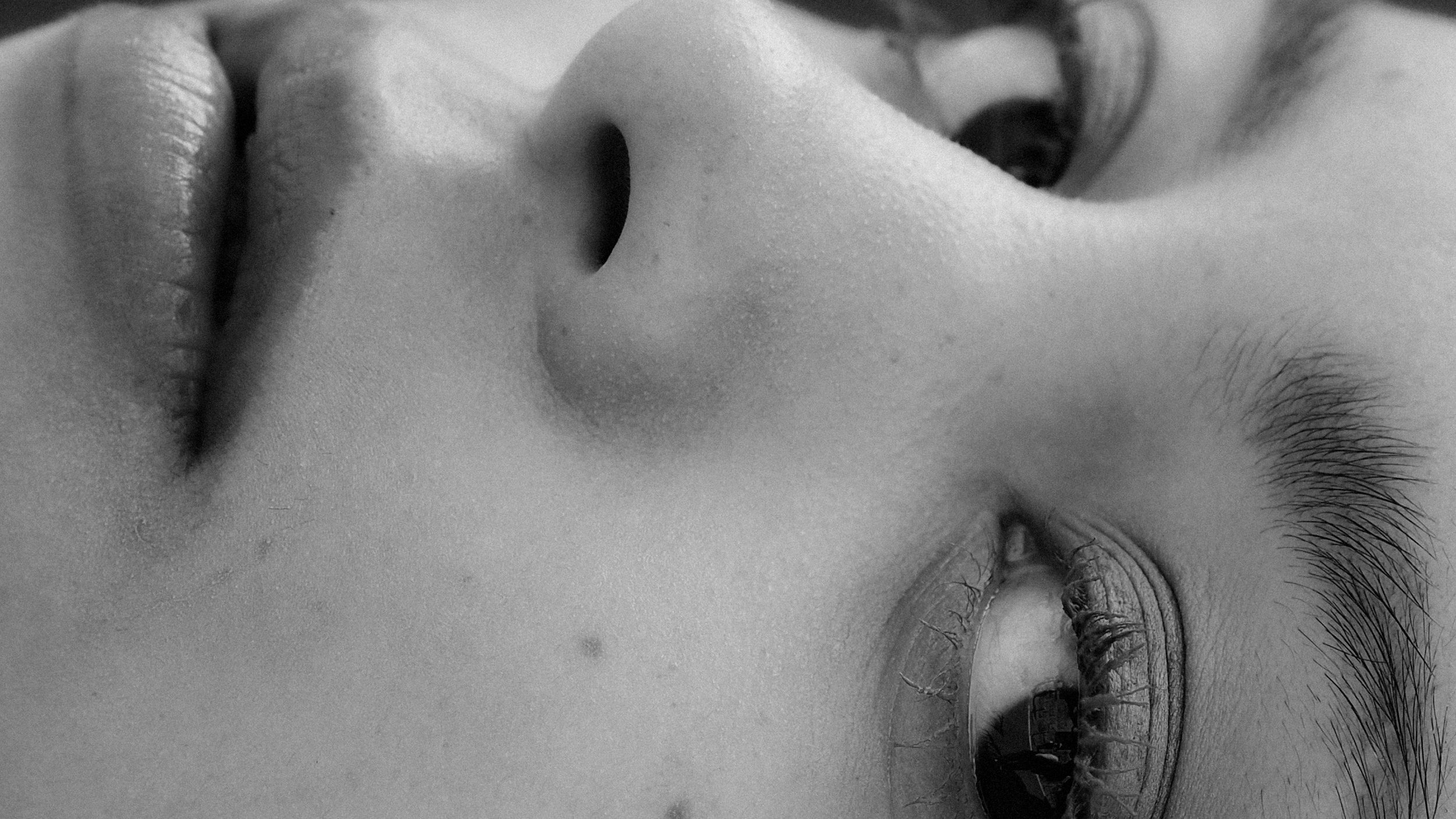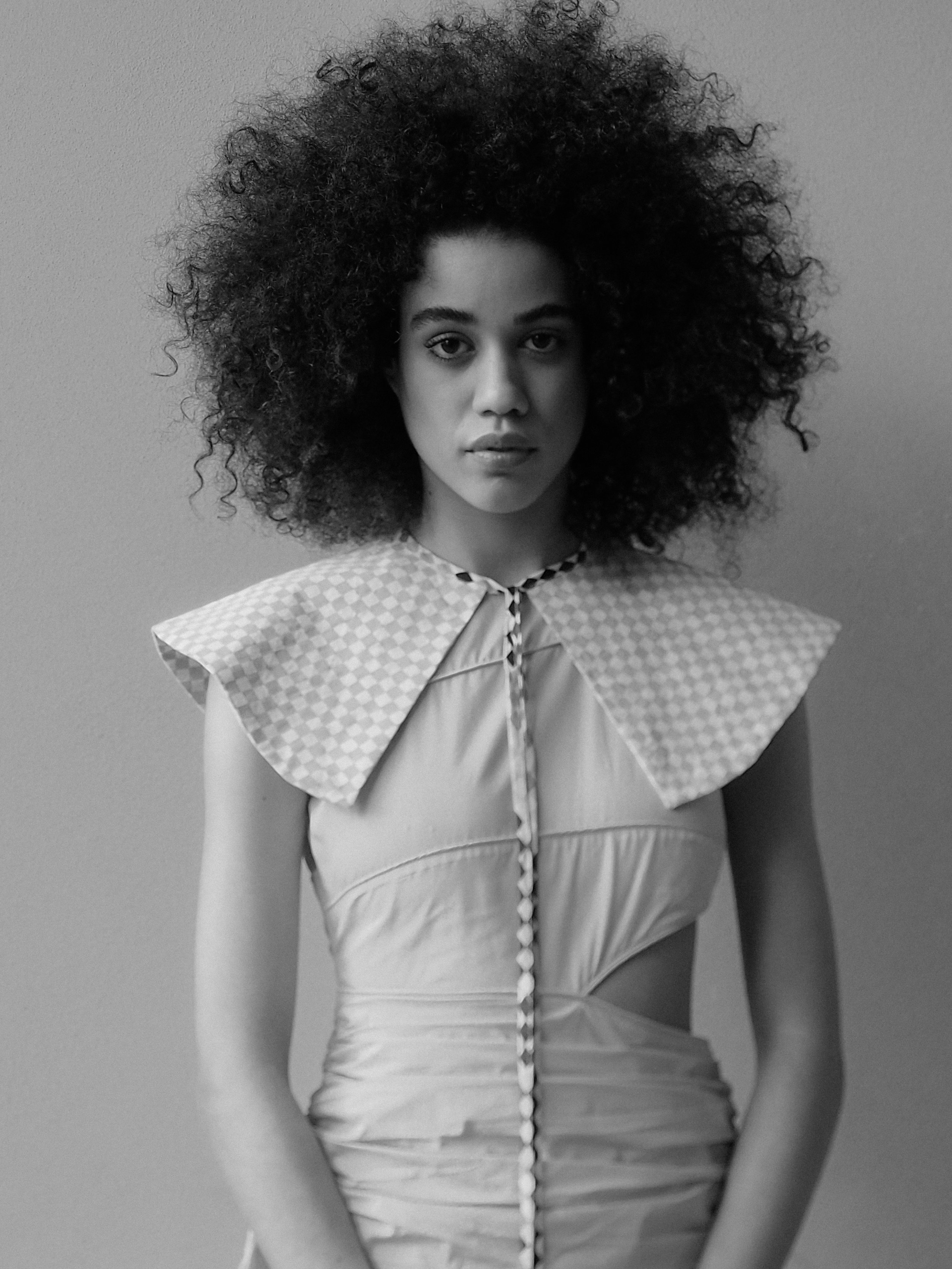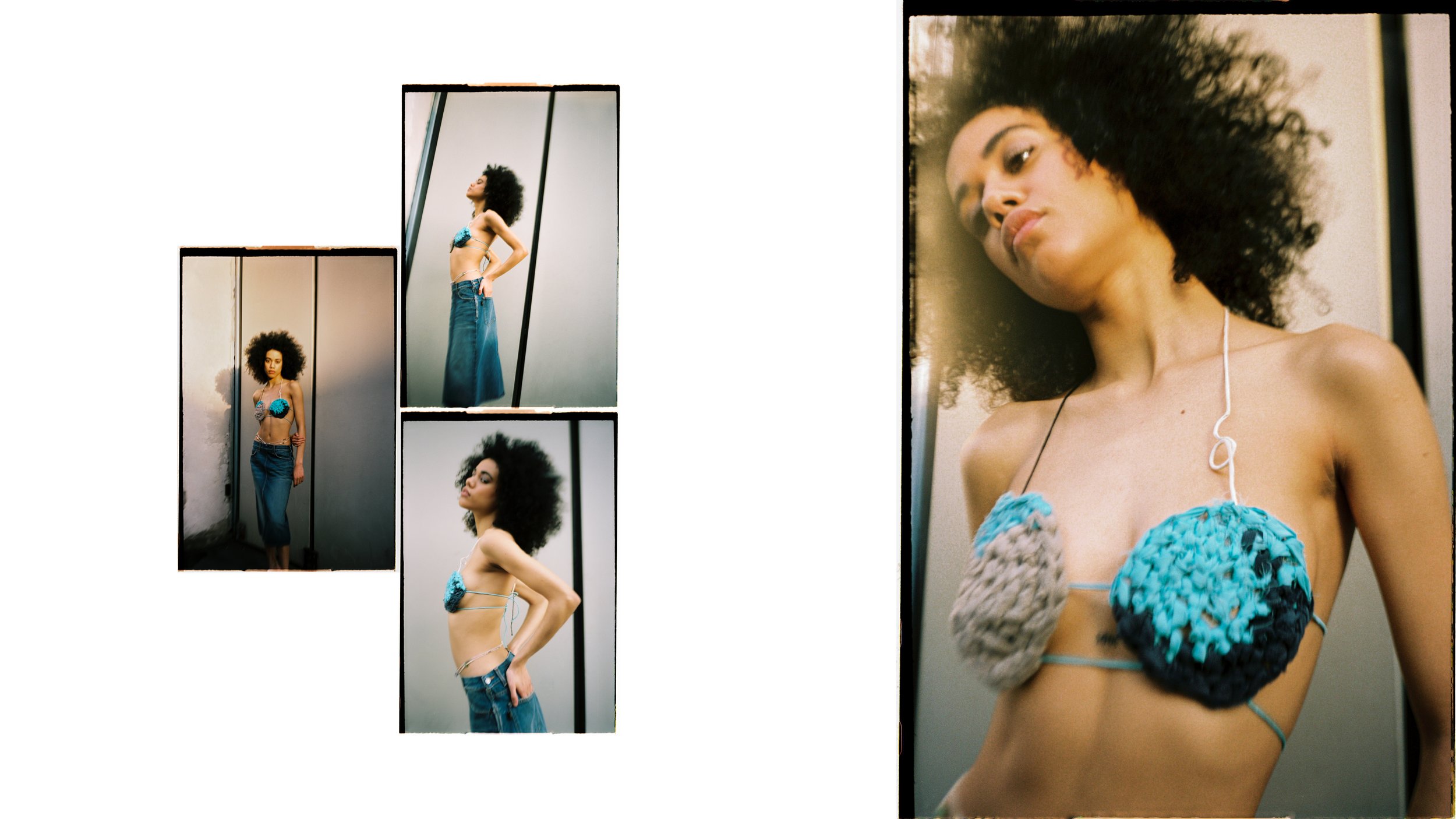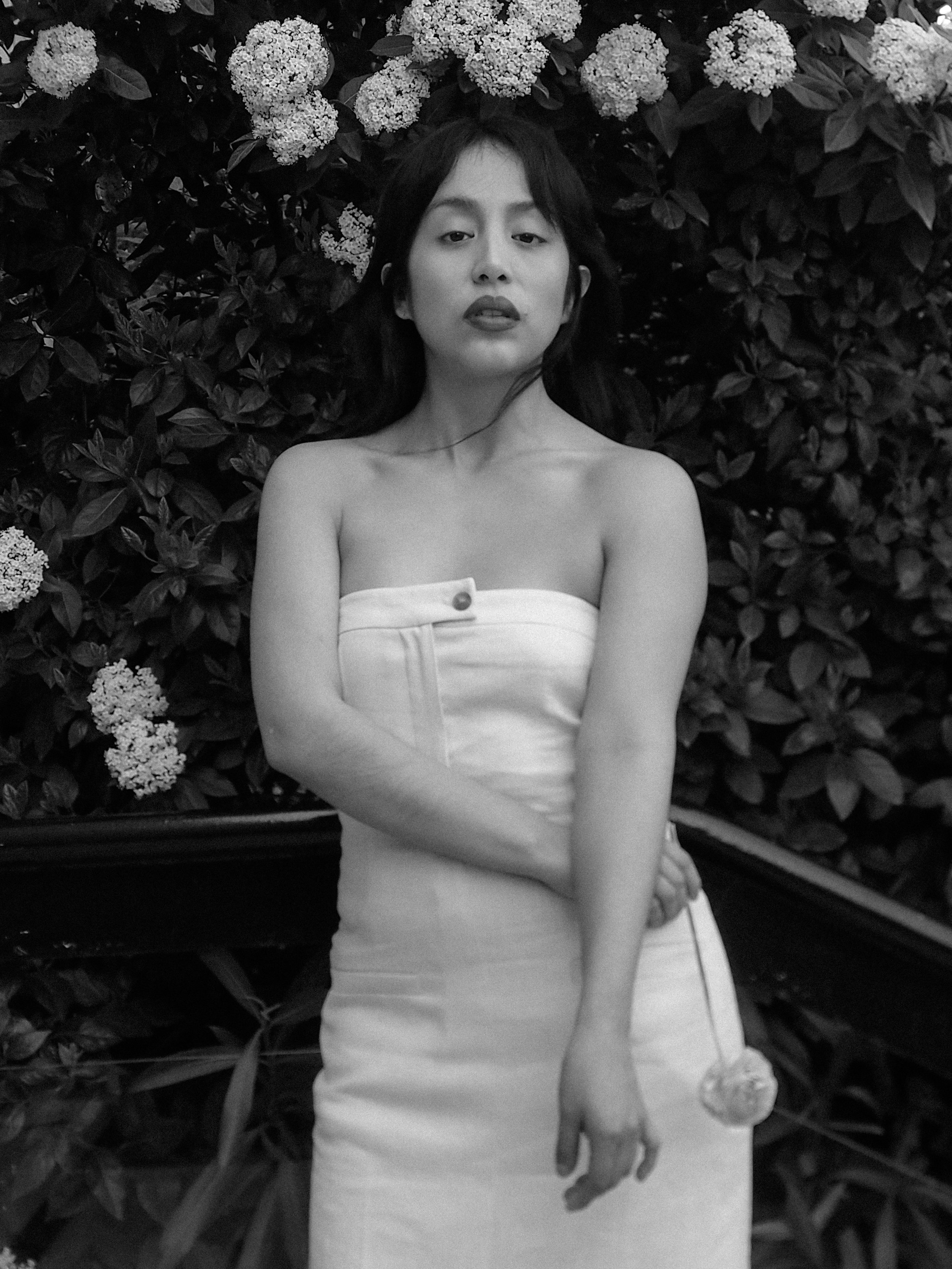Meet the new breed of creatives with latin roots in Milan
Evita, Perla, Ismael and Sonia are creatives united by the common thread of having roots from Latinamerica and living in Italy. We portrayed them and talked about their work, their cultural influences and their approach to creation.
Photography: Daniela Lopez, Styling and Interview: Francisca Ceballos, Makeup: Dayhana Piedrahita
Evita: Stylist and Model, 22
Arthur Arbesser hat, Romeo Gigli top and trousers
How would you define your job/creative activity?
I always knew that I was supposed to live and work in a creative environment but I didn’t really know how to express my creativity at its finest. Now I finally started working it out and I’m very excited about it. I really feel like I’m at the beginning of “My Journey”.
What about being Latin or having Latin roots do you think that gives a mark to your work/creative activity?
Even though I didn’t grew up in a Latin house but in Italy instead, the spiritual connection with my roots has always been very strong for me. But frankly, creatively speaking I haven’t been feeling it so much. This is why I can’t wait to go to Santo Domingo and deeply connect with my land, roots and family, and of course let it inspire me eventually.
How do you express your Latinness in your daily life?
Simply by trying more and more to be my true-self.
Perla: Accessories Designer, Model and Content Creator, 25
Arthur Arbesser collar, Weili Zheng dress
Anna Galaganenko top, Haikure denim skirt, Marsell shoes, Perla’s own waist bead
How would you define your job/creative activity?
I don’t do one particular thing. For example, I design my clothes but I wouldn’t call myself a designer. I have a mini brand of waist beads with mineral stones and colors that are related to those used in the Caribbean. Also, I paint, I photograph and I am a content creator.
I love the job I do because it permits me to express myself in different ways and to create an artistic idea with a team. I love to create new objects through different materials such as clay, cloth and colors.
What about being Latin or having Latin roots do you think that gives a mark to your work/creative activity?
I think that being latin has a mark on myself and my work and art. The shapes, colors and passion that are introduced in my creations always reconduct to Dominican Republic culture.
How do you express your Latinness in your daily life?
I express my Latinness in my daily life by doing simple things, like cleaning while I dance bachata or in the way I relate with others.
Ismael: Dj and Music Researcher, 29
CP company full look
CP company full look, Stonefly sandals
How would you define your job/creative activity?
My job is not just creative, is an introspective research job. I try to understand myself and my roots through music and sounds among other mediums. During my journey I try also to find “human bridges” inside the music that for me is a swapping ideas process, a social dynamics interchange and commercial activity that has existed for centuries. My biggest dream is to bring people together by being Dj and sound artist. It’s not easy, but I feel something is moving in Milan.
What about being Latin or having Latin roots do you think that gives a mark to your work/creative activity?
I have always thought about what being Latin means. In Italy –where I grew up–, made me feel bad about it because I didn't fit in with the typical Latin stereotype. But at the same time, I did like it a lot because a Latin person could be from any part of the American continent, or be Indigenous, Afroamerican or Caucasian and also so many other things. We all speak Spanish though.
When I started to make music, things got more complex because I understood that being Latin meant above all having Indigenous or Afro cultural roots. The music cultural products that has had more impact on a global scale has this identity at its core. If I think of Salsa or Reggeatton I relate to music with African roots. If I think about Inti Illimani or the movement “La nueva canción Latinoamericana” it's about a hybrid that comes from the indigenous and afro communities.
For me, being Latin means to value these two aspects, it is here where I often move.
How do you express your Latinness in your daily life?
Through quotidianity. Like when I’m cleaning the house "barrer la casa y escuchar música".
I think also through smiling.
When I speak with people about what my experience of being in Ecuador was as a child, I often speak about the concept of aguantar, which is always mentioned in my family. This word means in the material sense to “hold hard against difficulties”, instead, from the symbolic point of view it's related to having a strong spirit, but they are not excluded between themselves, they are interconnected. I often find in common this discourse between people who have been racialized.
Sonia, Dj and journalist, 31
Alysi dress
Caterina de Biasio dress, Il traffico sandals
How would you define your job/creative activity?
I’m creative when I let myself create dogma-free imaginaries, out of –often eurocentric– categories and canons that have brought just alienation. I try to do so through writing, but especially through music. As a journalist it's quite difficult to be creative, as the majority of spaces that I have to go through are oppressive, caring on the present hegemony. I feel better when I’m able to write in the right medium about the topics I’m interested in. Through djing and music in general it's easier for me to celebrate those liberation horizons. To emancipate from the written language as my primary communication medium has given me way more possibilities to imagine, create and to be self-determinate.
What about being latin or having Latin roots do you think that gives a mark to your work/creative activity?
The Latin concept is a concept I personally reject, especially when I work with creativity. I also reject it because it was him that rejected me first growing up in Italy as a Quechua descendant. It's a notion that has brought the systemic invisibility of the originary communities and afro-descendant, in the Abya Yala and diaspora. It has pushed us to think about our bodies and our identities as homogeneous products of mestizaje, in a single diluted narration of “the latino” as a racial and cultural identity that doesn't really exist. To try to enter into the Latin Canon has brought me to alienate myself almost all my life.
My father has always refused to identify himself as “latino”. Here in Italy, I have come near to his significance and stigma coming from the racism that I have interiorized during my whole life. To be Latin when I was a kid carried a stigma in itself, now it's trendy. This is why I have a conflictual relation with the term.
How do you express your Latinness in your daily life?
Always in terms of trying to abolish the Latin concept, to fully embrace my link with the Abya Yala territory, my Quechua descendance, and the ancestral memory that carries with itself, it's something that has saved me. The last years has given me the instruments that I was missing to love myself better, to hug with vulnerability and compassion the younger me that didn’t use to do it. Music in particular daily helps me to digest my roots and connect with dimensions that transcend time and space, understood not as a linear but cyclic movement. I’m convinced that when we listen and dance to reggaeton, huayno, caporal, cumbia, and also to the vast Latin club music, we affirm and self-determine who we are. Along with my partner Juana Bel, I try to canalize everything together through my project SAYRI, thinking about it as a political platform for women’s celebration and affective dissidences or latin genres, in the Italian clubbing context.


